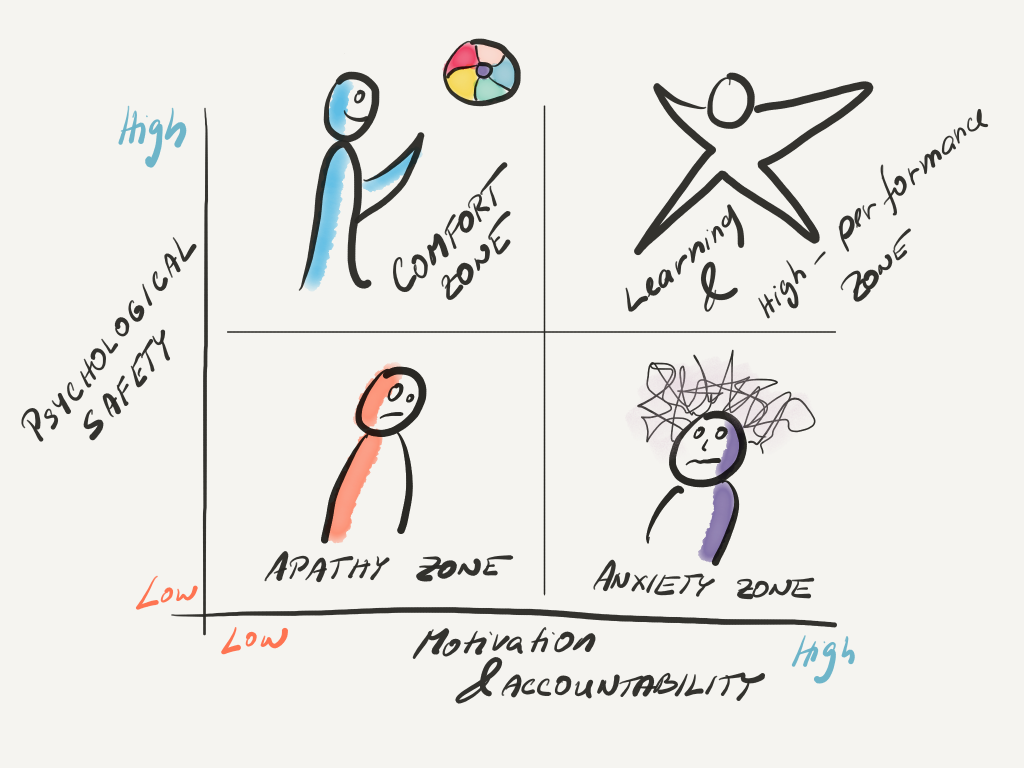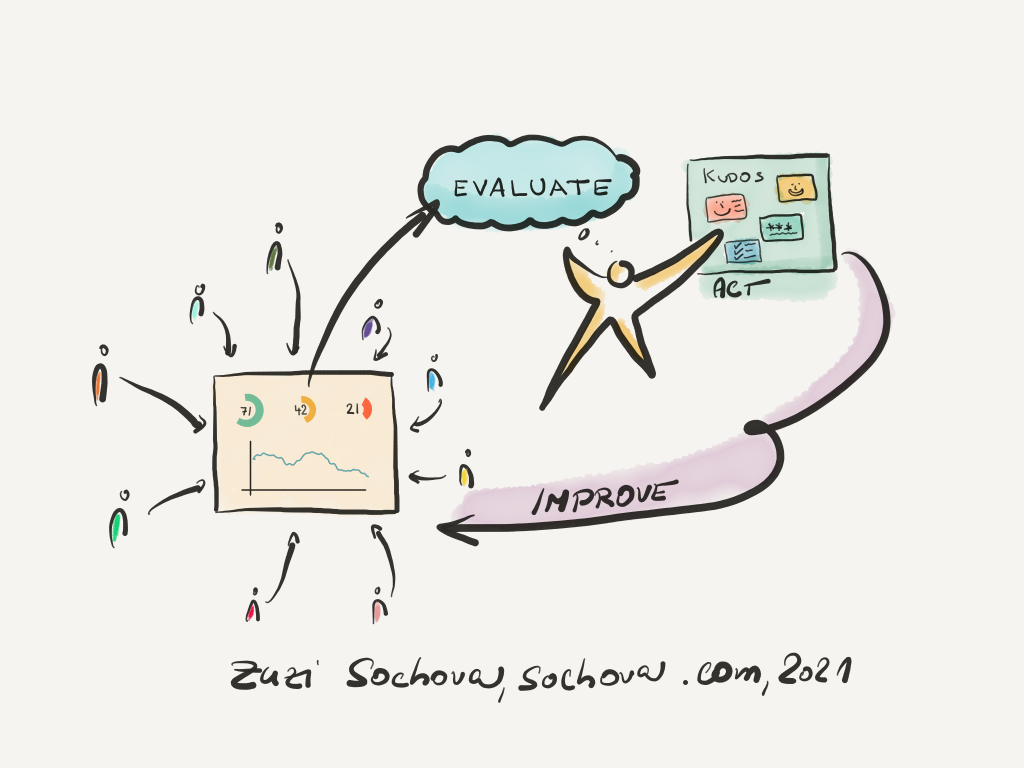Lately, I realized that people start listening more than reading and that podcasts become quite popular. So here is a list of my personal recommendations on top 10s agile podcasts.
#1: The #AgileWay Podcast by Zuzana Zuzi Sochova
#AgileWay podcast is exploring challenges organizations face on their agile journey. How to become a great ScrumMaster, how to change your leadership style, or how to embrace agility at the organizational level. Zuzi has also Czech language podcast “Jsme Agilni”.
Listen on Apple Podcasts: https://podcasts.apple.com/us/podcast/agileway/id1555101534
#2: LeSS (Large Scale Scrum) Matters Podcast by Ben Maynard
The LeSS (Large Scale Scrum) Matters podcast guides you through a proper understanding of how to use Scrum with multiple teams. Ben invites practitioners from the LeSS community to share their experiences with scaling Scrum.
Listen on Apple Podcasts: https://podcasts.apple.com/us/podcast/less-large-scale-scrum-matters/id1605120218
#3: (Re)Learning Leadership Podcast by Pete Behrens
(Re)Learning Leadership podcast is facilitated by Agile Leadership Journey founder Pete Behrens. The current ways of leading are failing to meet the challenges of our disrupted workforces. Today’s leaders have a choice between adaptation or atrophy: are you ready to evolve your mindset and accelerate change within your organization?
Listen on Apple Podcasts: https://podcasts.apple.com/us/podcast/re-learning-leadership/id1551181774
#4: Relationship Matters Podcast by CRR Global
The Relationship Matters Podcast We believe Relationship Matters, from humanity to nature, to the larger whole. Beyond Emotional Intelligence (relationship with oneself) and Social Intelligence (relationship with others) is the realm of Relationship Systems Intelligence where one’s focus shifts to the relationship with the group, team or system. This podcast is not specifically about agile, however in agile world relationship matters.
Listen on Apple Podcasts: https://podcasts.apple.com/us/podcast/relationship-matters/id1507583306
#5 The Collaboration Superpowers Podcast by Lisette Sutherland
The Collaboration Superpowers Podcast by Lisette Sutherland focus on remote work. Recently the remote work becomes a necessity, but not many organization knows how to make it healthy, effective, and collaborative space. Lisette Sutherland, one of the most experienced people about remote work I know, is interviewing people and companies doing great things… remotely! These interviews are packed with stories and tips for those whose business models depend upon successfully bridging distance to accomplish knowledge work.
Listen on Apple Podcasts: https://podcasts.apple.com/us/podcast/the-collaboration-superpowers-podcast/id931999061
#6: The Agile Book Club Podcast by Justyna Pindel and Paul Klipp
The Agile Book Club by Justyna Pindel and Paul Klipp is a podcast about books. Agile books. Every month, Justyna and Paul review a different agile book, sharing our thoughts, elevator pitches for the books, favorite quotations, and key takeaways.
Listen on Apple Podcasts: https://podcasts.apple.com/us/podcast/agile-book-club/id1465706071
#7: Agile Toolkit Podcast by Bob Payne
The Agile Toolkit Podcast by Bob Payne is one of the first agile podcasts, interviewing agile community about agile software development, methods, tools, and business agility.
Listen on Apple Podcasts: https://podcasts.apple.com/us/podcast/agile-toolkit-podcast/id78532866
#8: Scrum Master Toolbox Podcast: Agile storytelling from the trenches by Vasco Duarte
The Scrum Master Toolbox Podcast by Vasco Duarte interviews Scrum Masters and Agile Coaches from all over the world to get you actionable advice, new tips and tricks, improve your craft as a Scrum Master with daily doses of inspiring conversations with Scrum Masters from the all over the world. Some of the topics we discuss include: Agile Business, Agile Strategy, Retrospectives, Team motivation, Sprint Planning, Daily Scrum, Sprint Review, Backlog Refinement, Scaling Scrum, Lean Startup, Test Driven Development (TDD), Behavior Driven Development (BDD), Paper Prototyping, QA in Scrum, the role of agile managers, servant leadership, agile coaching, and more!
Listen on Apple Podcasts: https://podcasts.apple.com/us/podcast/scrum-master-toolbox-podcast-agile-storytelling-from/id963592988
#9: Bridging Agile and Professional Coaching Worlds Podcast by by Tandem Coaching Academy
Bridging Agile and Professional Coaching Worlds is a podcast with focus on anything and everything coaching – from Agile to Professional. We bring you the best of the best from the Agile and Professional coaching world, building that bridge between the two. We envision the future where Agile world embraces professional coaching skills and competencies, bringing them closer together.
Listen on Apple Podcasts: https://podcasts.apple.com/us/podcast/bridging-agile-and-professional-coaching-worlds/id1499503189
#10: The Working Genius Podcast with Patrick Lencioni
The Working Genius podcast by Patrick Lencioni is designed to help people identify their natural gifts and find joy and fulfillment in their work and life. What type of work makes you thrive? Are you burning out because your job requires you to work in your areas of frustration? How can teams and families better tap into one another’s gifts? This podcast answers all these questions and more. This is another podcast that is not agile by focus, but quite relevant in agile space.
Listen on Apple Podcasts: https://podcasts.apple.com/us/podcast/the-working-genius-podcast-with-patrick-lencioni/id1553105854
Other great podcasts recommend by the community:
There are many more. Let me know if there is a podcast you like missing and I’ll add it here.
who is agile?
Who is agile? is the video edition of the leanpub e-book of 2010. A book of personal reflections on journeys where people stumbled on agile.
Agile Amped Podcast – Inspiring Conversations
The Agile Amped podcast by Accenture | SolutionsIQ is the shared voice of the Agile community, driven by compelling stories, passionate people, and innovative ideas. Together, we are advancing the impact of business agility.
Listen on Apple Podcasts: https://podcasts.apple.com/us/podcast/agile-amped-podcast-inspiring-conversations/id992128516
Agile FM: “The Radio for the Agile Community”
Agile.FM by Jochen (Joe) Krebs interviews interesting agilists and bring their stories for a few years already, recording at many conferences. They cover a wide range of topics, for example Scrum, Kanban, Lean, Extreme Programming, CSM, PSM, Product Owner, Communication, Leadership, Agile Transformations and Cultural Change.
Listen on Apple Podcasts: https://podcasts.apple.com/us/podcast/agile-fm/id1263932838
A day in the life of an Agility Enabler
A day in the life of an Agility Enabler podcast by Jesus Mendez helps with building the next Agility Enabler’s generation in Montréal, Canada. Highlighting talented Scrum Masters, Agile Coaches and Agile Leaders from the Lean/Agile Montreal’s community, it intends to reveal what a day in the life of an Agility Enabler looks like and to help the audience with discovering the human being behind the Agility Enabler, its personal story, challenges, successful stories, tips, tricks and many more.
Listen on Apple Podcast: https://www.listennotes.com/podcasts/a-day-in-the-life-of-an-agility-enabler-tEmuaAecxbf/#


